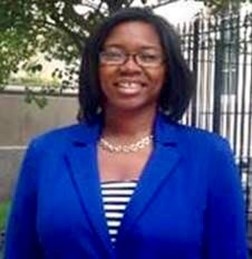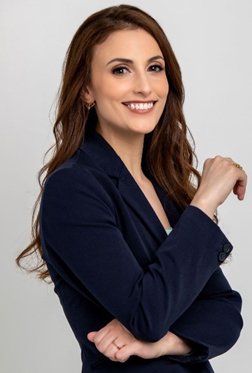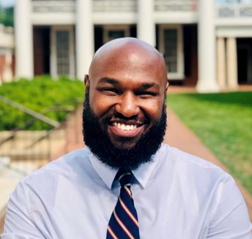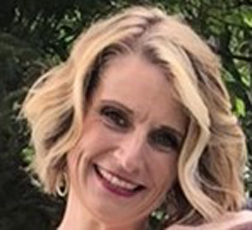Child Guidance Clinic
The Child Guidance Clinic is a branch within Family Court Social Services Division of the Superior Court of the District of Columbia. It's designed to meet both the needs of the Court and its staff for the purposes of providing comprehensive clinical and forensic psychological evaluations. Individual and group psychotherapy is also provided, as well as empirical research and consultation.
The District of Columbia is home to many ethnic groups and culturally diverse individuals. The majority of the youth represented in the city’s juvenile justice system are from economically disadvantaged and under-resourced communities. Many of the youth and their families have been exposed to multiple traumatic experiences over the course of their lives. The Child Guidance Clinic serves individuals with varying identities, backgrounds, needs and abilities to include: LGBTQ+, non-English speaking youth, individuals with co-occurring behavioral health disorders, individuals who are deaf/hard of hearing, and individuals who are physically disabled. As a result, our staff and trainees have exceptional and unique opportunities to conduct culturally-informed assessments and provide services to youth that present with an array of cognitive, emotional and interpersonal problems in both community and secure settings.
The Child Guidance Clinic also offers clinical training for pre-doctoral psychology students to include a one-year, full-time APA accredited internship program, and training in assessment and psychotherapy for externs in doctoral programs. Click here to learn more about the CGC externship program. Click here to learn more about the CGC internship program.
Court Ordered Forensic/Mental Health Evaluations
- General Battery (Psychological)
- Psychoeducational
- Competency to Stand Trial
- Competency to Waive Miranda Rights
- Neuropsychological
- Violence Risk
- Sex Offender
- Waiver of Juvenile Jurisdiction Evaluation
Therapy Services
- Individuals and Group Therapy
- Anger Management
- Competency Attainment Classes
- Juvenile Sex Offender Treatment
Multidisciplinary Consultation and Prevention Services
- Specialty/Diversion Courts
- Juvenile Behavioral Diversion Program (JBDP)
- H.O.P.E. Court
- Commercial Sexual Exploitation of Children (CSEC) MDT and Task Force
Partners:
- Family Court Judges
- Department of Behavioral Health (DBH)
- Office of the Attorney General (OAG)
- Defense Bar
- Child and Family Service Agency (CFSA)
- Department of Health Services (DHS)
- Department of Youth Rehabilitation Services (DYRS)
Past and Current Research
- Developed of Sex Trafficking Assessment Review (STAR), empirically validated screening took to identify youth at risk for CSEC
- Measurement variance of African-Americans in the juvenile justice system
- Construct development of measures for African-American involved in the juvenile justice system
- Evaluation of the efficacy of mental health court and other probation programming
- Evaluation of stereotype threat and racial identity attitudes in the juvenile justice population
- Demographic and psychosocial factors in the juvenile justice population
- Epidemiological studies

Katara Watkins-Laws, Ph.D. is the acting chief psychologist at the Child Guidance Clinic and a licensed psychologist. She received her doctorate in Counseling Psychology from Howard University and holds a Graduate Certificate in Working with Survivors of Trauma and Torture from the University of Maryland. Dr. Watkins-Laws has worked in forensic, school, outpatient hospital, and community settings for over 15 years. Dr. Watkins-Laws completed her predoctoral internship at Lawrence Hall Youth Services, a residential treatment center in Cook County, Chicago, IL. She provides psychotherapy, assessment and consultation to children, adolescents and adults in the Washington, DC region. She has presented at multiple professional conferences and has authored and co-authored several scientific articles including publications in the NSHA Dialog, The Journal of Negro Education, and Psychology, Public Policy, and Law. At DC Courts, Dr. Watkins-Laws is part of the multi-agency juvenile specialty court stakeholders’ committees. She co-wrote multiple federal grants awarded to DC Courts’ Court Social Services Division from the Office of the Juvenile Justice and Bureau of Justice. Dr. Watkins-Laws was also a co-author of the validation study for DC Court’s Sex Trafficking Assessment Review (STAR), a screening tool to determine risk of child sexual exploitation for court-involved youth.

Jennifer Christman, Psy.D., ABPP is a supervisory psychologist at the Child Guidance Clinic. She also serves as the Clinic’s internship and externship training director. Dr. Christman is an American Board of Professional Psychology (ABPP) certified forensic psychologist and a licensed clinical psychologist. Her experience as a forensic evaluator has ranged from urban and rural court systems across the East Coast to prison systems in the Midwest, state agencies, government contractors, and private practice. She specializes in juvenile waiver/transfer, psychosexual, and violence risk assessment, parental fitness and adult civil competencies, and IMEs for U.S. Veterans. Dr. Christman is an American Academy of Forensic Psychology fellow and has given local, regional, and national presentations about forensic topics. She has been featured in Psychology Today and on The Forensic Psychologist podcast.

Malachi Richardson, Ph.D. is a supervisory psychologist at the Child Guidance Clinic where he provides therapy, psychological assessment, and supervision services. He has particular expertise in forensic assessment, psychopathology, adolescent development, and trauma exposure. A graduate of Morehouse College and the University of Virginia’s Curry School of Education, Dr. Richardson is passionate about providing services to underserved communities and working with youth involved with the justice system. He has provided assessment and therapeutic services for adolescents in various forensic institutions including DC Courts and the Blue Ridge Detention Center in Charlottesville, VA. In addition to his clinical experience, Dr. Richardson draws upon his research experience in the areas of youth mentoring, identity development, and violence exposure to create a detailed and well-informed understanding of the presenting issues for adolescent clients. Across the scope of his work, Dr. Richardson is committed to providing services that consider the cultural and contextual factors that influence conceptualization, treatment, and outcomes for justice system involved youth.

Ms. Daniuska R. Ruiz, originally from Dominican Republic, moved to Maryland 27 years ago. She obtained an associate’s degree from Prince George’s Community College in 2006. For the past 17 years, she has been a Deputy Clerk at DC Superior Court. Prior to joining DC Courts, Ms. Ruiz served as a Family Liaison for Prince George’s County Public Schools, a Bilingual Legal Assistant for a law firm in Silver Spring, MD and an Office Manager for a Medical Health Insurance Program for low-income families at Catholic Charities DC.

Ms. Jennifer Snow is the Psychiatric Residential Treatment Facility (PRTF) coordinator for the Child Guidance Clinic. A native Minnesotan, she moved to Maryland approximately 15 years ago. For the past 14 years, she has been employed as a Probation Officer at D.C. Superior Court in the Court Social Services Division. Prior to her employment with the D.C. Courts, she was employed as a probation officer for the State of Minnesota before she was hired as a U.S. Probation Officer for the District of South Dakota in 2001. Jennifer resides in Maryland with her husband and their two sons.
PUBLISHED MANSUCRIPTS
Andretta, J.R., Watkins, K.M., Barnes, M.E., & Woodland, M.H. (2016). Towards the discreet identification of commercial sexual exploitation of children (CSEC) victims and individualized interventions: Science to practice. Psychology, Public Policy, and Law, 22, 260-270.
Andretta, J. R., Worrell, F. C., Ramirez, A.M., Barnes, M.E., Odom, T., & Woodland, M. H. (2016). A pathway model for emotional distress and implications for therapeutic jurisprudence in African American juvenile court respondents. Cultural Diversity and Ethnic Minority Psychology, 22, 341-349. doi: 10.1037/cdp0000053
Andretta, J.R., Ramirez, A.M., Barnes, M.E., Odom, T., Roberson-Adams, S., & Woodland, M.H. (2015). Perceived parental security profiles in African American adolescents involved in the juvenile justice system. Journal of Family Psychology, 29, 884-894. doi: 10.1037/fam0000105
Andretta, J.R., Worrell, F.C., Ramirez, A.M., Barnes, M.E., Odom, T., Brim, S., & Woodland, M.H. (2015). The effects of stigma priming on forensic screening in African American youth. The Counseling Psychologist, 43, 1162-1189. doi: 10.1177/0011000015611963
Ramirez, A.M., Andretta, J. R., Barnes, M. E., & Woodland, M. H. (2015). Recidivism and psychiatric symptom outcomes in a juvenile mental health court. Juvenile and Family Court Journal, 66, 31-46. doi: 10.1111/jfcj.12025
Worrell, F.C., Andretta, J.R., & Woodland, M.H. (2014). Cross Racial Identity Scale (CRIS) scores and profiles in African American adolescents involved with the juvenile justice system. Journal of Counseling Psychology, 61, 570-580. doi: 10.1037/cou0000041
Woodland, M.H., Andretta, J. R., Moore, J. A., Bennett, M. T., Worrell, F. C., & Barnes, M. E. (2014). MACI scores of African-American males in a forensic setting: Are we measuring what we think we are measuring? Journal of Forensic Psychology Practice, 14, 418-437. doi: 10.1080/15228932.2014.973773
Andretta, J. R., Thompson, A. D., Ramirez, A. M., Kelly, J., Barnes, M. E, & Woodland, M. H. (2014). A study on the psychometric properties of Conners Comprehensive Behavior Rating Scales-Self Report scores in African-Americans with juvenile court contact. Journal of Forensic Psychology Practice, 14, 1-23. doi: 10.1080/15228932.2014.863051
Andretta, J. R., Woodland, M. H., Ramirez, A. M., & Barnes, M. E. (2013). ADHD symptom frequency and ADHD symptom count clustering in African-American adolescents with juvenile court contact. Journal of Forensic Psychiatry and Psychology, 24, 570-593. doi: 10.1080/14789949.2013.823218
Andretta, J.R., Odom, T., Barksdale, F., Barnes, M.E., Ramirez, A.M., & Woodland, M.H. (2014). An examination of management strategies and attitudes among probation officers. Journal of Forensic Social Work, 4, 150-166. doi: 10.1080/1936928X.2014.958644
OVERVIEW:
The Child Guidance Clinic (CGC) has an externship program that offers training in both assessment and therapy, with a primary focus on assessment. The CGC has full-year and summer practicum placements for graduate students enrolled in doctoral psychology programs. The CGC has been a clinical training site for over 20 years. We are a staff of five licensed clinical psychologists, including specialists in forensic psychology and neuropsychology, with a multitude of assessment, therapy, and research experience. There are also two deputy clerks who assist the clinical staff and trainees by scheduling appointments, finalizing reports, and helping our youth and families feel welcome and comfortable.
The CGC is a unit within the DC Superior Court’s Social Services Division. The mission of the Court Social Services Division (CSSD) is to assist the Court in the administration of justice and serve court-involved youth. The CGC provides clinical and forensic evaluations, and individual and group treatment for youth through various diagnostic and treatment processes. These clinical services assist the Court in making decisions in the juvenile case process. The youth served by the CGC typically range from age 12 to age 18. Many of them come from underserved communities and have histories of academic difficulties, family conflict, and exposure to trauma. Charges faced by the youth most often include assault, possession of a weapon, unauthorized use of a vehicle, substance use or possession, truancy, runaway, theft, or robbery. Parent/guardian involvement is necessary for all clinical services provided.
An externship placement with the CGC is an opportunity for students to sharpen their clinical assessment and integrative report writing skills. It is also an opportunity for students to enhance their psychotherapy skills and clinical interviewing techniques, and gain experience in a forensic setting.
ASSESSMENT:
The primary focus of the CGC’s externship program is psychological assessment. Practicum students perform comprehensive psychoeducational and psychological evaluations of court-involved youth, which include intellectual, academic, adaptive, personality, socioemotional, and/or diagnostic measures, as well as clinical interviews, collateral interviews, and court document review. All evaluations are court-ordered by a judge. The data gathered during these evaluations are integrated into a comprehensive evaluation report written by the student. These reports are given to court personnel involved in the youth’s case (e.g., probation officer, defense attorney) in order to assist the Court with better understanding the youth’s psychosocial functioning, placing the youth’s misbehavior within the context of his or her life and developmental level, recommending appropriate placement and interventions, and assisting with treatment planning.
This placement is an opportunity for students to sharpen their clinical assessment skills. Therefore, students are expected to possess thorough working knowledge and skills in clinical and diagnostic interviewing of clients and relevant collateral informants. Students should also be proficient in psychological testing, scoring, interpretation of test data, and report writing, which includes recommendations. Standard psychological tests include: WISC-V, WAIS-IV, WJ-IV, PAI-A, BASC-3, and Conners CBRS. Students will also have the opportunity to learn and utilize a broader array of assessment measures.
PSYCHOTHERAPY:
Practicum students provide individual and/or group therapy services to the youth. In-person treatment services are conducted on court premises, which may include the CGC or one of the Court’s satellite offices offering after-school programming. As our clients are juveniles, on-site therapy takes place after school Monday through Thursday between 4:00 to 8:00 pm, with 7:00 pm being the last appointment time. Virtual, remote, and/or telehealth therapy is conducted via phone or video chat during normal business hours (8:30 am to 5:00 pm).
Externs and interns also participate in a weekly 2-hour didactic seminar on Thursday afternoons. Seminars typically consist of a 1-hour workshop facilitated by a CGC staffmember or external specialist, followed by one hour of group supervision or student case presentations. On a rotating basis, students present an individual case for exploration and discussion and receive feedback from staff and student colleagues. Students follow therapy cases throughout their training and supervision tenure to monitor ongoing dynamics and longitudinal progress of clients.
Students are expected to have successfully taken basic courses in psychotherapy and acquired curricula should include materials on ethics and multicultural considerations. Students should have experience with maintaining progress/process notes and other relevant documentation.
GUIDELINES AND REQUIREMENTS:
Students in placement at the CGC are required to be advanced doctoral students enrolled in an American Psychological Association (APA) accredited, accreditation-eligible, or provisionally accredited doctoral program in clinical or counseling psychology. Full-year practicum students are expected to remain in placement for one academic year and no less than eight months. The training year typically runs from August 1 through June 30, though there is flexibility regarding end dates and the exact time frame may be negotiated with CGC training faculty. Full-year students are required to attend a multi-day orientation event which typically takes place during the last week of July or first week of August. Summer practicum students typically train at the CGC from June to August. There is flexibility regarding start and end dates for summer externs and the exact time frame may be negotiated with CGC training faculty. Summer students are required to attend a one-day orientation event which typically takes place in mid-May.
RESPONSIBILITIES:
Students are expected to spend no less than 16 hours weekly attending to their duties regarding the CGC. The exact number of hours spent on site can vary according to the criteria of the students’ school and scheduling. Some of the weekly hours are spent writing evaluation reports, which can take place at home. Students can expect to complete an evaluation and report every one to two weeks, though the specific number of evaluations per week will be determined by the student, his or her supervisor, and the needs of the Court.
SUPERVISION:
Students will be assigned an individual supervisor who is a licensed psychologist. The student’s supervisor will direct the work and provide one-on-one feedback on a weekly basis. Students will be expected to conceptualize assessment cases during supervision and provide clinical progress notes for therapy sessions. Students are also able to receive group supervision during Thursday seminar. In addition, each Court-designated site has a site supervisor. Site supervisors are members of the Court Social Services Division and provide administrative assistance, logistical guidance, and mentorship. Site supervisors will be responsible for ensuring that service delivery is in compliance with Court rules.
The student’s individual supervisor will complete periodic written evaluations of the student, using forms either sent by the student’s school program or the CGC’s own forms. Some schools may request both forms. A copy of the CGC’s form will be kept on record for future reference. The CGC and the DC Superior Court reserve the right to remove any student for substandard performance.
Students will receive supervised experience in: (a) clinical assessment techniques, (b) expanding knowledge and experience with an array of assessment tools, (c) integrative report writing, (d) increasing awareness of cultural diversity and its role in clinical processes, (e) providing culturally sensitive clinical services, (f) establishing and maintaining rapport and therapeutic relationships with clients, (g) developing knowledge and skill in therapy tools, theories, and techniques, (h) adapting professional behavior and competence to meet different needs (intake interviewing, crisis intervention, etc), (i) ethical practice and decision-making, (j) developing insights into one’s own clinical identity and the impact of one’s behavior upon clients and (k) expanding knowledge of current literature regarding effective assessment and therapy skills, theories, and implementation.
PROFESSIONAL CONDUCT:
All students are expected to maintain ethical and professional conduct in accordance with APA Ethical Principles of Psychologists and Code of Conduct. Students should be familiar with the APA Specialty Guidelines for Forensic Psychology. Students will adhere to the guidelines set forth by the Court. Students will receive information about these standards during Orientation at the Court. Additionally, all clinical materials will remain the property of the Clinic and the DC Superior Court.
APPLICATION PROCEDURES:
To apply for an externship placement, please send a current curriculum vitae (CV), a letter of introduction stating your interest, two letters of recommendation from persons responsible for your training to date and/or familiar with your clinical skills, a redacted evaluation report (including multiple assessment instruments; preferably of a juvenile), and a redacted therapy conceptualization report or clinical progress note, via email to the CGC’s Deputy Clerk Daniuska Ruiz at Daniuska.Ruiz [at] dcsc.gov and Training Coordinator Dr. Jennifer Christman at Jennifer.Christman.Training [at] dcsc.gov.
DEADLINES:
Applications are due at the ClGC by close of business on the first Friday in February. Decisions made about interviews shortly follow. After applications are reviewed, a decision will be made whether or not an interview offer will be extended to the applicant. The ultimate decision regarding an externship offer will be made by the CGC after completion of interviews. As noted, attending orientation events is mandatory for all students. Dates for orientation will be provided as soon available. Please plan accordingly.
When a student accepts an externship position offer, the student will then be sent a DC Court Application to complete which includes a Criminal History Request form. The application should be returned immediately to the CGC’s deputy clerk at Daniuska.Ruiz [at] dcsc.gov and copying Jennifer.Christman.Training [at] dcsc.gov. It will be forwarded to the DC Courts’ Human Resources Division. Students who do not pass this background check cannot train at the CGC.

 Share
Share